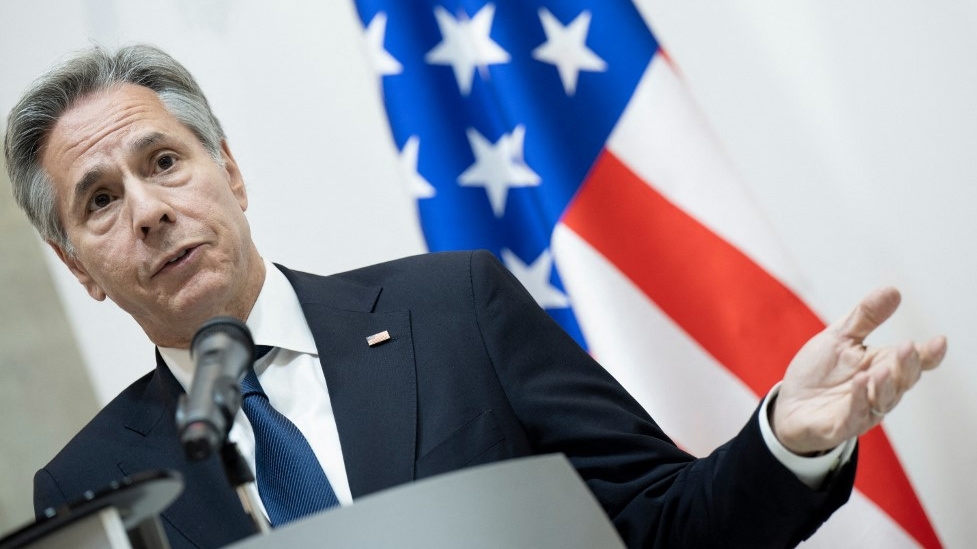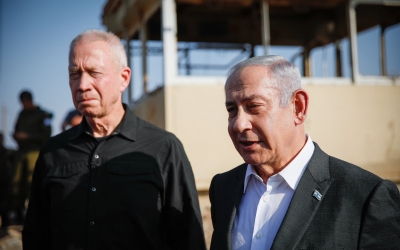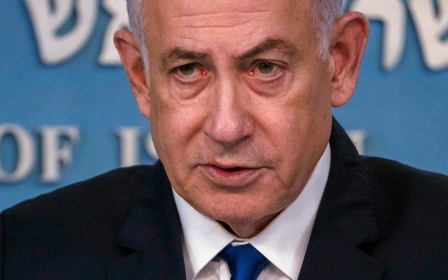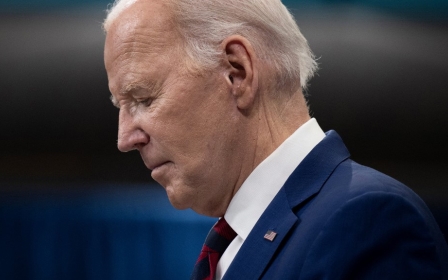War on Gaza: Western objections to ICC warrants are baseless

The International Criminal Court (ICC)'s prosecutor, Karim Khan, has finally issued arrest warrants over the war in Gaza, a move that had been rumoured for weeks.
On the Hamas side, Gaza leader Yahya Sinwar, Qassam Brigades commander Mohammed Deif and political bureau chief Ismail Haniyeh stand accused of eight counts of war crimes and crimes against humanity. On the Israeli side, Prime Minister Benjamin Netanyahu and Defence Minister Yoav Gallant are accused of seven counts.
Leaving aside the different words used in reaction to the prosecutor's decision by Israel and Hamas, and by their supporters, three main objections have been raised.
These include the alleged moral equivalence between Hamas and Israeli leaders established by the warrants; a dispute over the court's jurisdiction in the matter; and the principle of complementarity, under which a state has the right to investigate crimes prior to ICC intervention.
The first objection has a political nature, the other two a legal one.
New MEE newsletter: Jerusalem Dispatch
Sign up to get the latest insights and analysis on Israel-Palestine, alongside Turkey Unpacked and other MEE newsletters
A detailed rebuttal to the warrants issued by US Secretary of State Antony Blinken outlines all three objections. He cites the "shameful" equivalence established between Hamas, which is considered a terrorist organisation in many western countries, and the democratic government of Israel.
In retrospect, it is worth asking whether the ICC prosecutor might have avoided a political headache by issuing two separate indictments, especially considering the differences in the counts ascribed to Hamas and Israeli leaders.
Regardless, the accusation that he has drawn a moral equivalence is ludicrous.
Principle of proportionality
The US and other supporters of Israel are invoking a sort of mitigating circumstance, as Israel is a democracy exercising its "right to self-defence" in Gaza. This fails to address Israel's obligations as an occupying power in the Palestinian territories.
Democracies should exercise their right to self-defence according to international law and the principle of proportionality. In Gaza, more than 35,000 Palestinians have been killed in the past seven months, in retaliation for the killing of around 1,200 Israelis on 7 October; this is everything but proportionate.
Follow Middle East Eye's live coverage of the Israel-Palestine war
The international community might expect indiscriminate killings by a group like Hamas, but not by a democracy like Israel. The latter is held to higher moral standards, which have been difficult to maintain as we have watched the Israeli army bomb hospitals, schools and UN facilities, while systematically targeting civilians, aid workers and journalists.
Ultimately, the moral equivalence was not created by the ICC prosecutor's warrants, but by the Israeli army's outrageous behaviour on the ground.
Blinken also raised the jurisdictional issue, because Israel is not a signatory to the ICC's Rome Statute. Even here, the usual US double standards and hypocrisy are at play, because Washington curiously welcomed and supported the ICC's indictment of Russian President Vladimir Putin over the war in Ukraine, even though Moscow, too, is not a signatory to the Rome Statute.
With such a shocking record, could anyone be surprised if the ICC prosecutor decided the Israeli legal system could not be relied upon?
This US position on jurisdiction is groundless. The ICC does have jurisdiction, because Palestine in 2015 became a state party to the Rome Statute, which gives the court jurisdiction when the "conduct in question" was committed on its territory.
To leave no stone unturned and better "armour" his warrants, Khan also convened a panel of experts in international law to assess and advise on his decision.
The panel supported the prosecutor's case, concluding that "the ICC has jurisdiction in relation to crimes committed on the territory of Palestine, including Gaza, since 13 June 2014". The panel also agreed that the court "has jurisdiction over crimes committed by Palestinian nationals inside or outside Palestinian territory ... [and] over Israeli, Palestinian or other nationals who committed crimes in Gaza or the West Bank".
The panel specifically noted that the court "has jurisdiction over Palestinian nationals who committed crimes on the territory of Israel, even though Israel is not an ICC State Party".
Court of last resort
The last objection levelled against the prosecutor relates to the argument that the ICC is a sort of "court of last resort", which is prevented by its statute from proceeding in any case unless the relevant government is unable or unwilling to investigate.
Blinken thus invoked the principle of complementarity, which would theoretically grant the Israeli legal system a preliminary opportunity to conduct a full investigation of the crimes in Gaza alleged by the prosecutor - and only if Israel showed reluctance to proceed could the case then become a matter for the ICC.
Perhaps Blinken is oblivious to the dismaying record of Israeli authorities when it comes to investigating crimes committed by the country's own citizens - members of the military, civilians and settlers - against Palestinians since 1948.
According to B'Tselem, from the Second Intifada in 2000 through 2015, the Israeli NGO "demanded an investigation in 739 cases in which soldiers killed, injured, or beat Palestinians, used them as human shields, or damaged Palestinian property ... in a quarter of these cases (182), no investigation was ever launched, in nearly half (343), the investigation was closed with no further action, and only in very rare instances (25), were charges brought against the implicated soldiers". Around a dozen cases were referred for disciplinary action, while others were still being processed at the time of the 2016 report.
B'Tselem's sad conclusion was that, for Palestinians in the Israeli legal system, the chance of a complaint leading to an indictment is around three percent. It would thus be reasonable to assume that the conviction rate is close to zero.
One of the most recent major Palestinian bloodsheds before the current war took place in 2018, as Palestinians held regular peaceful protests along the Gaza fence, demanding an end to the blockade Israel has imposed since 2007. Thousands of people, including children, women and seniors, turned out to protest.
In response, Israel deployed dozens of snipers and transformed the area into a horrendous firing range, targeting unarmed people. A total of 223 Palestinians, 46 of them under the age of 18, were killed, and some 8,000 were injured. To date, no serious investigation has been carried out by Israeli authorities.
With such a shocking record, could anyone be surprised if the ICC prosecutor decided the Israeli legal system could not be relied upon, and instead moved straight to the warrants?
The views expressed in this article belong to the author and do not necessarily reflect the editorial policy of Middle East Eye.
Middle East Eye delivers independent and unrivalled coverage and analysis of the Middle East, North Africa and beyond. To learn more about republishing this content and the associated fees, please fill out this form. More about MEE can be found here.






